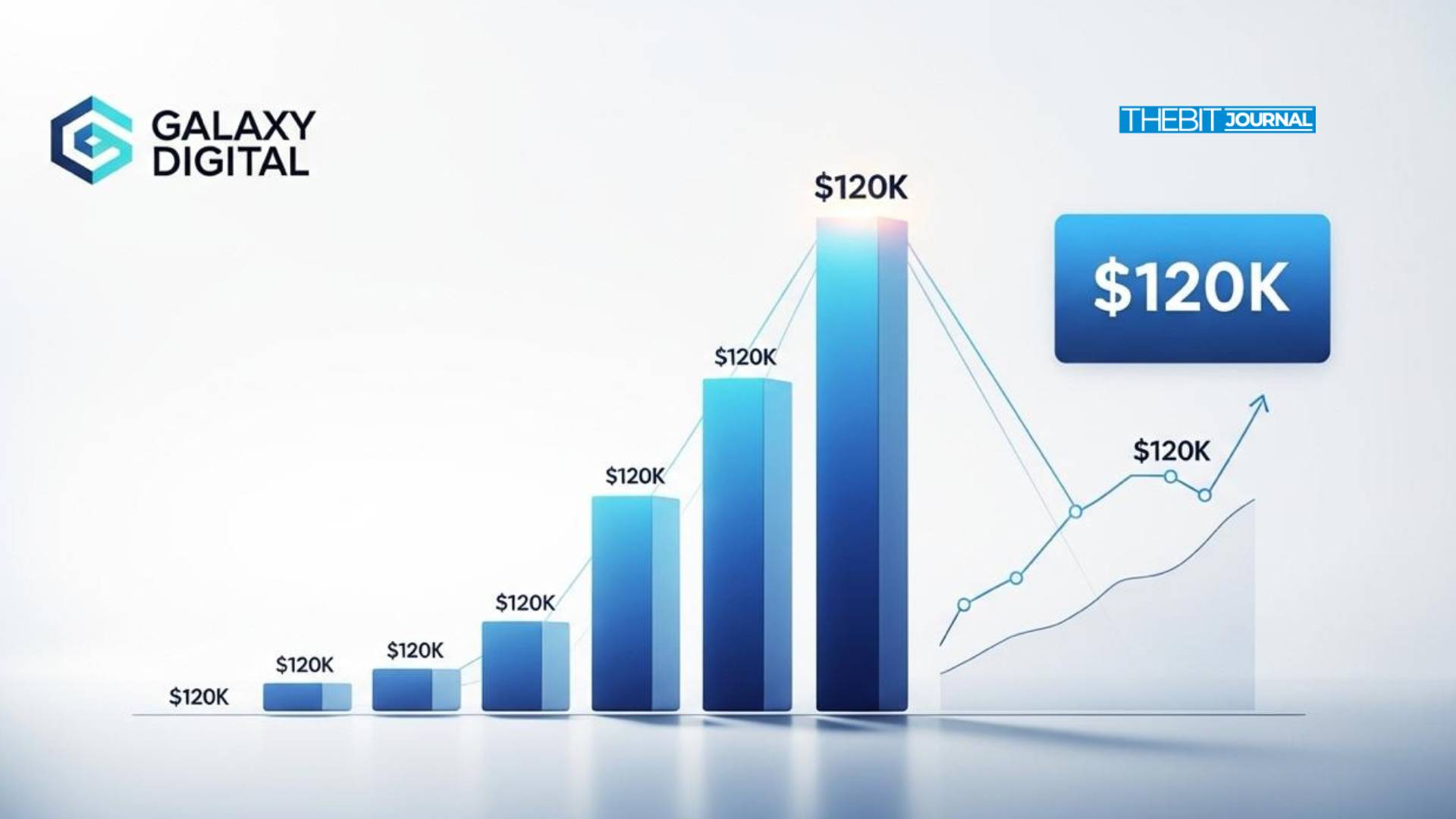How to Calculate Crypto Taxes in 2025: Key IRS Updates, and Global Tax Trends
This article was first published on The Bit Journal.
Crypto taxes 2025 are dominated by new reporting rules and guidance. In the US, the IRS still treats crypto as property and as a result; selling or trading triggers capital gains tax, while mining or staking yields ordinary income tax. The latest federal rules such as Form 1099-DA for brokers make record-keeping and accurate cost basis tracking more important than ever.
US Crypto Tax Updates in 2025
This year, the biggest news for crypto taxes was the new IRS reporting rules. Under the Infrastructure and Jobs Act, US exchanges like Coinbase must issue Form 1099-DA for crypto sales, which took effect January 1, 2025.
This form reports gross proceeds of each sale to taxpayers and the IRS, making gain/loss calculations easier. By Jan 1, 2026 brokers must also report cost basis. Notably in April 2025; Congress repealed a proposed rule that would have required decentralized (DeFi) platforms to report trades.
However, centralized exchanges and custodial wallets will still report transactions. Reports show that brokers will start issuing 1099-DA to users in early 2026 for 2025 transactions. Overall; 2025’s rule changes shift more tracking to platforms but taxpayers are still responsible for accurate reporting of gains/losses.
The IRS still emphasizes that all crypto transactions must be reported, echoing their long standing guidance that digital assets are “treated as property” for tax purposes. Crypto taxes in 2025 now involves keeping detailed records of every transaction and using the new IRS forms correctly.
Understanding Crypto Taxation in 2025
For US taxpayers, cryptocurrency is still taxed like other property like stocks or real estate. This has two main parts:
The first is Capital gains tax. When crypto holders sell or exchange crypto at a profit; tax is owed on the gain. This implies the sale price minus holder’s cost basis.
If the crypto holder held the asset for one year or less, it’s a short-term gain taxed at ordinary income rates (10-37%). If held over one year; it’s long-term, taxed at reduced rates (0%, 15%, or 20% depending on income).
Next is the Income tax. If a crypto holder earns crypto via mining, staking or as payment for goods/services; that income is taxed at ordinary income rate (10-37%). The fair market value of crypto at the time received must be reported.
For example, earning 0.5 ETH valued at $1,000 means $500 of ordinary income. Later if that same crypto is sold, calculate a new capital gain or loss based on what was originally “paid” (the $500 basis) vs. the sale price.
In all cases; the IRS requires detailed records. Crypto holders must track each transaction’s date, crypto type, amount, fair market value in USD and cost basis. These numbers feed into the calculations.
Notably; IRS guidance prohibits the “universal wallet” method, meaning crypto traders must account wallet-by-wallet from the start of 2025 onward. That means; never lose track of purchase price and fees for every coin or token and note the exact time and value in USD.
Calculating Crypto Gains and Losses
To calculate crypto tax for 2025, these steps must be considered:
Cost Basis: This is what the holder paid for the crypto, including fees. It’s the “purchase price” for tax purposes. If the crypto holder got crypto for free (gift or airdrop), then the basis is its fair market value at receipt.
Record Sale/Trade Details: For each crypto disposal (sale, swap, spend), note the date, the amount received (in USD), and any fees. The spot market rate on that date must be used to convert crypto to USD.
For example, selling 1 BTC at $20,000 with a $15,000 basis is a $5,000 gain. List gains or losses transaction by transaction, then net them together. Losses can be used to offset gains.
Tax Rates: Each gain is classified as short-term (held ≤1 year) or long-term (>1 year). Apply personal tax bracket to short-term gains, and the lower 0/15/20% rates to long-term gains. If losses exceed gains, losses can be carried forward.
Income Events: If a crypto holder mined, staked, or received crypto as payment, it should be treated as ordinary income equal to the crypto’s USD value at receipt. This income adds to taxable income for the year. Any later sale of those coins would be a capital gain or loss from its receipt-date basis to the sale price.
Hence;
To Calculate Gain or Loss: Subtract the cost basis from the proceeds for each transaction.
Gain/Loss = Sale Proceeds – Cost Basis
In summary, every crypto tax calculation comes down to accurate cost basis and fair market value tracking. IRS instructions (Form 8949, Schedule D) assume crypto holders have these figures for each crypto disposal. Using tools (like crypto tax software) or spreadsheets can help not to miss any event.
Reporting and Tax Forms for Crypto
When filing, U.S. taxpayers must report crypto sales and income on the right IRS forms. On Form 1040’s Schedule D, report total capital gains or losses.
Each transaction goes on Form 8949, where date acquired, date sold, proceeds, cost basis, and gain/loss are listed. For crypto earned as income, it should be reported on Form 1040 as ordinary income (Schedule 1 or Schedule C for business activity).
Most crypto brokers and exchanges are to help by sending crypto holders the Form 1099-DA. This form will list the holder’s gross proceeds from any crypto sales or trades. For 2025 returns, brokers will provide proceeds but not basis; for 2026 and later, they will also report basis.
Crypto holders should note that even if they don’t get a 1099 (e.g. peer-to-peer trades or DeFi activity) those transactions must still be reported.
The IRS explicitly states that everyone answering “Yes” to the digital asset question on Form 1040 must report all crypto gain/loss.
In short, the IRS forms (8949/Schedule D, 1040, etc.) must be used to report gains/losses and income while the 1099-DA data is used as available to verify.
Global Crypto Tax Trends 2025
Many other countries also tax crypto similarly; often as capital gains or income.
United Kingdom: HMRC treats crypto as a capital asset. Profits above the (reduced) £3,000 CGT exemption are taxed at 18-28%; depending on the taxpayer’s rate. Crypto mining or services payments are taxed as income (0-45%) above the personal allowance. New OECD reporting rules (CARF) will require UK exchanges to share customer data from 2026.
Canada: Crypto is generally capital gains or business income. Only 50% of a capital gain is taxable; the rest is tax-free, at the crypto holder’s normal tax brackets. The inclusion rate rises to 66.7% for very large gains above CAD $250K in 2026. Mining and staking income are taxed as ordinary income. Canadians must keep the same detailed records (date, value, basis) and report transactions by April 30 each year.
Germany: Crypto is treated as a private asset, taxed under income tax rules. Short-term gains are added to income (up to 45%, plus a 5.5% solidarity tax). However, long-term holdings can be sold tax-free. Income from crypto like staking and mining is taxed at ordinary rates as well. German taxpayers under €1,000 net profit may not even need to file.
Many other countries follow similar models of capital gains or income tax. Emerging frameworks like the OECD’s Crypto-Asset Reporting Framework (CARF) are pushing for standardized reporting across jurisdictions.
Under CARF, crypto platforms worldwide will reportedly share transaction data with tax authorities starting with 2026 reporting. Despite variations, the core calculation (sale price minus cost basis) is a constant global principle.
Conclusion: Crypto Tax Future
Tax professionals emphasize that 2025 is a transition year and many new rules are still settling. Although Congress rolled back some DeFi reporting requirements, experts warn proper reporting will only get more important.
Reports claim accurate record-keeping is still required for even the casual investor since blockchain activity is public and the IRS is watching. Under a crypto-friendly administration, regulations may evolve; but taxpayers can’t assume leniency.
Looking ahead; analysts point to automation of tracking, global data sharing and IRS enforcement. For example, HMRC in the UK is sending “nudge letters” to investors and building tools to analyze crypto trades.
In the US, the shift to Form 1099-DA reporting and the end of universal wallet accounting; means crypto holders should adopt a wallet by wallet accounting method now.
Overall the consensus is; stay informed and keep records. Use tax software or professional help to ensure each crypto event (trades, income, transfers) is captured with cost basis data.
As one expert firm puts it, while information reporting to the IRS has changed, taxpayers remain responsible for accurately reporting gains and losses. In other words don’t assume the new forms do all the work; proactive tracking and consultation with a tax advisor is highly recommended.
Glossary
Capital Gains Tax: Tax on the profit from selling an asset.
Cost Basis: Original investment amount in the crypto (purchase price plus fees). It is subtracted from the sale price to compute gain or loss.
Form 1099-DA: A new IRS tax form; that crypto brokers will use to report the total proceeds from digital asset sales to crypto holders and the IRS. It helps taxpayers verify the amounts reported on Schedule D/Form 8949.
Crypto-Asset Reporting Framework (CARF): An OECD tax reporting standard; being adopted globally. Starting in 2026; many countries (including the UK) will require crypto platforms to share detailed transaction and user information with tax authorities.
Holding Period: The time a crypto asset is held before selling. It determines tax rate.
Taxable Event: Any crypto transaction that triggers tax.
Frequently Asked Questions About Crypto Taxes in 2025
Do crypto holders have to report crypto transactions on their 2025 tax return?
Yes. The IRS requires all crypto transactions to be reported. Any sale, trade, gift or income (mining, staking, etc.) in crypto must be included on tax return.
How does one calculate crypto capital gains or losses?
For each crypto sale or exchange, subtract cost basis (what was originally paid, including fees) from the proceeds to find the gain or loss. Record every transaction’s date, crypto type, units and USD values. Classify each gain as short-term (≤1 year held) or long-term (>1 year); for the correct tax rate. Sum all gains and losses for the tax year and fill out Form 8949 and Schedule D accordingly.
What forms are used to report crypto on taxes?
U.S. taxpayers use Form 8949 to report each cryptocurrency sale or trade; and then summarize totals on Schedule D of Form 1040. Crypto mined or received as payment is included as income on 1040 (Schedule 1 or Schedule C). Exchanges are expected to send Form 1099-DA detailing taxpayer’s crypto sale proceeds; which is then used to verify records. Even if you taxpayer doesn’t get a 1099 (e.g. peer-to-peer trades); transactions must still be reported.
Are cryptocurrency airdrops, gifts, and hard forks taxable?
Yes. The IRS treats free crypto from mining; staking, airdrops, forks, or as gifts as income. Report the fair market value of the crypto at the time received as ordinary income. For gifts received; the basis is the fair market value at receipt. If that crypto is later sold or traded, then compute capital gains/losses based on that basis.
What changed in crypto tax rules for 2025?
The big change is the IRS’s requirement that brokers report crypto sales proceeds on Form 1099-DA starting earlier this year on Jan. 1, 2025. This makes crypto reporting more like stock sales. Another recent change is the repeal of a DeFi reporting rule, so certain decentralized platforms are exempt. Importantly, the IRS’s fundamental tax treatment of crypto as property has not changed.
Read More: How to Calculate Crypto Taxes in 2025: Key IRS Updates, and Global Tax Trends">How to Calculate Crypto Taxes in 2025: Key IRS Updates, and Global Tax Trends







